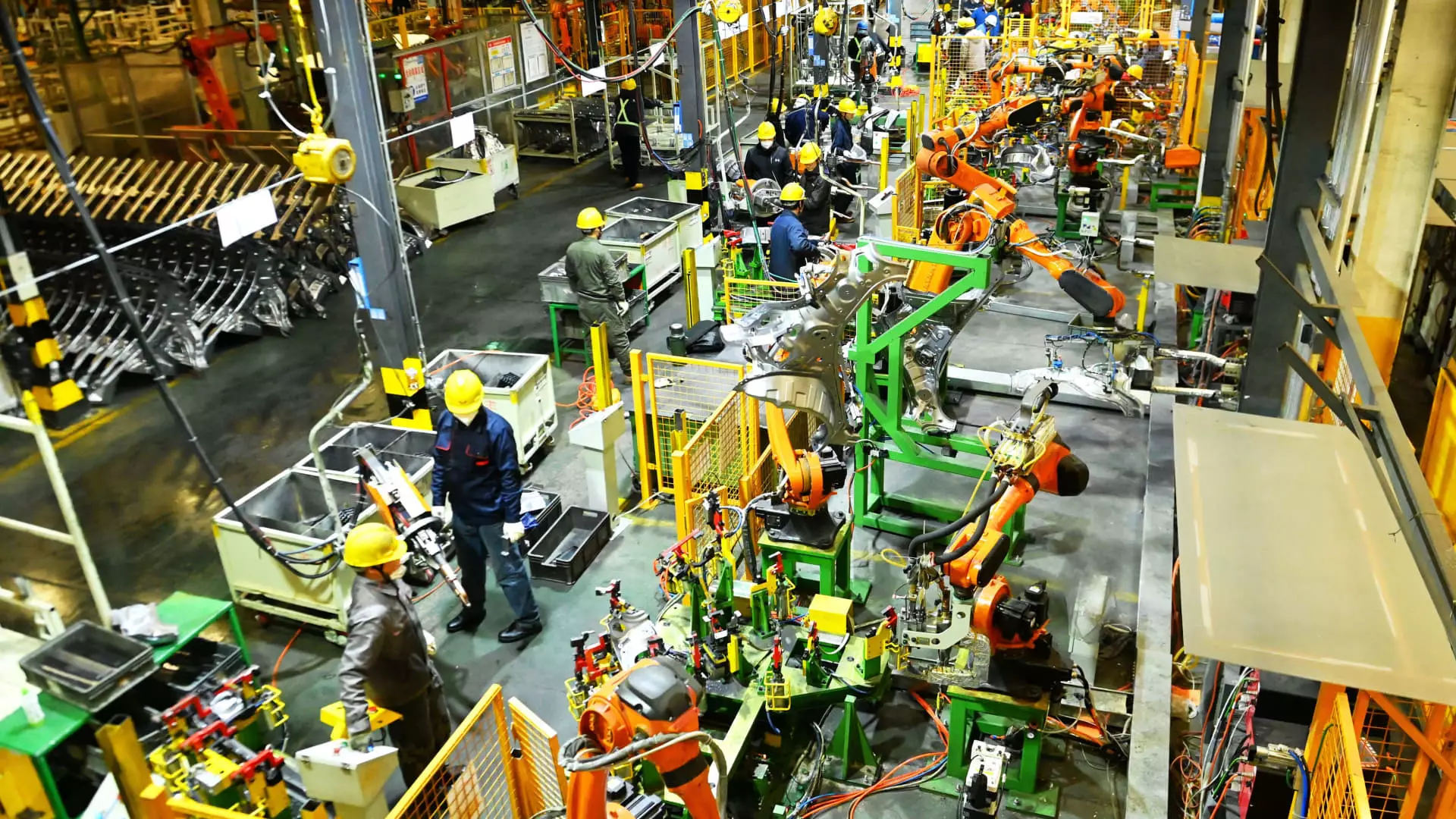As the automotive industry grapples with the implications of President Trump’s proposed tariffs, the potential exemptions for certain automakers raise questions about the broader economic landscape. With a backdrop of escalating trade tensions, particularly between the U.S. and China, the automotive sector finds itself caught in a complicated web of regulatory uncertainty. The administration’s current strategy, initially centered around protecting American manufacturing, is now being scrutinized as manufacturers lobby for relief from the burdensome levies. It’s a classic case of unintended consequences; tariffs designed to protect local jobs may actually jeopardize them instead.
Trump’s consideration of exemptions reflects more than just a shift in strategy; it highlights the tenuous balance the administration must maintain between nationalist economic policies and the realities facing a critical American industry. The automotive sector employs millions and is deeply integrated into the U.S. economy. Whether these tariffs achieve their intended goal or stifle innovation and domestic production will determine the industry’s trajectory in the immediate future.
The Irony of Exemptions Amidst Trade Warfare
The negotiation for tariff exemptions is steeped in irony. The initial goal of these tariffs was to promote domestic production under the guise of protecting American jobs. Now, as automakers express their concerns, the administration is faced with the paradox of having to protect those jobs it aimed to fortify. Reports indicate that automakers have already felt the weight of tariffs on imported steel and aluminum, which complicates their production costs and market competitiveness.
Industry leaders have begun to unite in their call for relief, underscoring the seriousness of the situation. Their message is clear: without exemption from these upcoming auto parts tariffs, many suppliers could face insurmountable financial distress, leading to a ripple effect that harms American manufacturing on a larger scale. This is no mere academic exercise; real people and jobs are at stake here.
The Potential Ripple Effects of Tariffs
In the high-stakes world of auto manufacturing, clarity and consistency in regulations are paramount. General Motors CEO Mary Barra recently voiced her concerns regarding the unpredictability of trade policies. Her words encapsulate a growing unease among industry leaders, who are faced with the challenge of making long-term investments without assurance about future operating costs. The fear is not just about immediate pricing but about the very future of the American automotive industry.
Should the administration proceed with the 25% tariff on imported vehicles and parts, we may witness a scenario where companies are forced to raise prices or, worse, wade into the turbulent waters of layoffs and plant closures. What was intended as a protective measure against foreign competition could manifest into a self-inflicted wound on the industry.
Divided Opinions on National Pride vs. Economic Prudence
The conversation surrounding tariffs is often conflated with national pride. Many supporters of Trump’s policy argue that imposing tariffs serves to bolster American manufacturers and provide them with a competitive edge. However, the detractors point to the potential economic backlash that accompanies heavy tariff systems. It’s a battleground of ideologies; while promoting “Made in America” is a noble cause, we can’t ignore the price tag that comes with it.
This is particularly evident when considering the need for global supply chains in manufacturing processes. The automotive industry thrives on interconnected international relationships. By isolating the market with tariffs, we risk stymying innovation and collaboration, which are essential for success in an increasingly competitive global economy.
The Balancing Act Ahead
Ultimately, the fate of the automotive industry lies in the administration’s ability to balance robust American manufacturing with the broader economic implications of their trade policies. The pressure from automakers has created a crossroad, one that demands a level of foresight and adaptability. Exemptions from certain tariffs could provide a short-term reprieve for the industry, but the administration must tread carefully.
In a landscape characterized by rapid change, smart regulations that cultivate growth without placing unnecessary burdens on businesses are crucial. Clarity, coherence, and communication will be the cornerstones of a sound policy moving forward. In an arena where every decision has ramifications, the administration holds the cards that could either strengthen or undermine the backbone of American economic prosperity.

